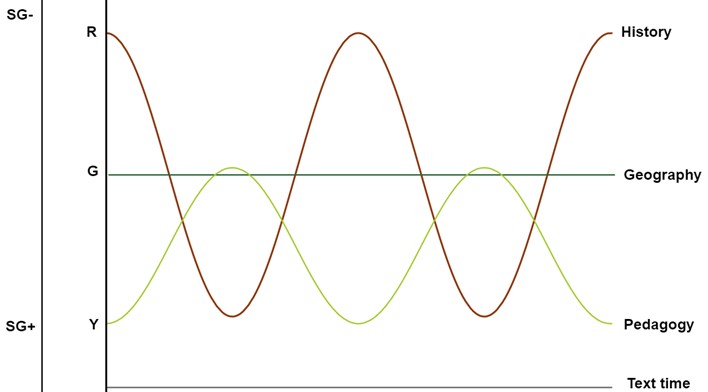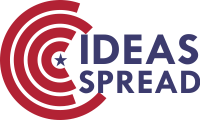Radical Visible Pedagogy and Cumulative Knowledge-Building in Education
Abstract
Twenty-first century learning revolves around a pedagogical discourse based on simplistic dichotomies, favoring a student-centered approach. This direction claims that such a learning model will lead to in-depth learning in education. This paper refutes this claim and argues that curricula based on twenty-first century learning promotes a social and context-dependent form of knowledge. To examine the problem of 21st century learning, and to develop an alternative, this paper introduces Bernstein’s pedagogical modalities, which are investigated using the terms “semantic gravity” and “semantic density.” These concepts are used to analyze teachers’ pedagogical practices in three different subjects, considering the further effects of these practices on learning and knowledge-building, as expressed in submitted student papers. The analysis suggests that practices that create long semantic waves, where knowledge is transformed between decontextualized meanings and contextualized meanings, are a condition for in-depth learning and cumulative knowledge-building. The paper argues that this form of knowledge-building is a result of a radical visible pedagogy, which includes practices that are based on different forms of knowledge, making visible how these forms of knowledge can be connected and transformed in education.
References
Barrett, B., & McPhail, G. (2023). Conceptualizing a radical visible pedagogy. Journal of education (Boston, Mass.), 203(3), 726-735. https://doi.org/10.1177/00220574211053576
Barrett, B., & Rata, E. (2014). Knowledge and the future of the curriculum: International studies in social realism (1st ed.). Palgrave Macmillan.
Bernstein, B. (1977). Towards a theory of educational transmissions (vol. 3). Routledge & Kegan Paul.
Bernstein, B. (1990). Class, codes and control: 4. The structuring of pedagogic discourse. Routledge & Kegan Paul.
Bernstein, B. (2000). Pedagogy, symbolic control and identity: Theory, research, critique. Rowman & Littlefield.
Bolstad, R., Gilbert, J., & McDowall, S. (2012). Supporting future-oriented learning & teaching: A New Zealand perspective. Wellington, N.Z.: Ministry of Education.
Bourne, J. (2004). Framing talk: Towards a “radical visible pedagogy.” In J. Muller, B.
Davies & A. Morais (Eds.), Reading Bernstein, researching Bernstein (pp. 61-74). RoutledgeFalmer.
Bratland, E. (2018). Technology and education: Why do students still need access to specialized knowledge? In E. Baron-Polańczyk (Ed.), ICT in educational design (vol. 12, pp. 37-49). Zialona Gora University Press.
Bratland, E., & El Ghami, M. (2021). The Janus Face of Professional Knowledge: What Organizational Principles Are behind the Students’ Perceptions of Professional Knowledge in New Norwegian Teacher Education? Education research international, 2021, 1-10. https://doi.org/10.1155/2021/1253416
Bratland, E., & El Ghami, M. (2022). Recontextualization of knowledge in the new Norwegian curriculum: Epistemic and non‐epistemic design in learning objectives for social studies. Curriculum Journal, 34(3), 457-471. https://doi.org/10.1002/curj.197
Bratland, E., Ghami, M. E., & Mediå, M. (2022). Technology and knowledge. In what way are knowledge and teachers’ knowledge practices in subject areas crucial for the integration of technology in education? Nordic Journal of Digital Literacy, 17(3), 155-169. https://doi.org/10.18261/njdl.17.3.2
Bratland, E., & El Ghami, M. (2023). The Norwegian curriculum and integration of knowledge in textbooks in social studies: A comparative study. International Educational Research (IER), Volum 6.(2), 46-55. https://doi.org/10.30560/ier.v6n2p46
Choo, S., Sawch, D., Villanueva, A., & Vinz, R. (2017). Educating for the 21st century: Perspectives, policies, and practices from around the world (1st 2017. ed.). Springer.
Frodeman, R. (2014). Sustainable knowledge: A theory of interdisciplinarity. PalgraveMacmillan.
Fullan, M., McEachen, J., & Quinn, J. (2018). Deep learning: Engage the world, change the world. Corwin.
Hoadley, U. K. (2006). Analysing pedagogy: The problem of framing. Journal of Education, 40, 15-34.
Lourie, M. (2020). Recontextualizing twenty-first century learning in New Zealand education policy: The reframing of knowledge, skills, and competencies. New Zealand Journal of Educational Studies, 55(1), 113-128. https://doi.org/10.1007/s40841-020-00158-0
Maton, K. (2013). Making semantic waves: A key to cumulative knowledge-building. Linguistics and Education, 24(1), 8. https://doi.org/10.1016/j.linged.2012.11.005
Maton, K. (2014). Knowledge and knowers: Towards a realist sociology of education. Routledge.
Maton, K. (2016). Building knowledge about knowledge-building. In K. Maton, S. Hood, & S. Shay (Eds.), Knowledge-building: Educational studies in legitimation code theory (pp. 1-23). Routledge, Taylor & Francis Group.
Maton, K., & Moore, R. (2010). Social realism, knowledge, and the sociology of education: Coalitions of the mind. Continuum.
McPhail, G. (2020). The search for deep learning: A curriculum coherence model. Journal of Curriculum Studies, 53(4), 420-434. https://doi.org/10.1080/00220272.2020.1748231
McPhail, G., & Rata, E. (2016). Comparing curriculum types: "Powerful knowledge" and "21st Century Learning." New Zealand Journal of Educational Studies, 51(1), 53-68. https://doi.org/10.1007/s40841-015-0025-9
Moore, R. (2013). Basil Bernstein: The thinker and the field. Routledge.
Muller, J., & Gamble, J. (2010). Curriculum and structuralist sociology: the theory of codes and knowledge structures. In P. Peterson, E. Baker & B. McGraw (Eds.), International encyclopedia of education (pp. 505-509). Elsevier.
Organization for Economic Cooperation and Development [OECD]. (2018). Teaching for the future: Effective classroom practices to transform education. OECD.
Rata, E. (2016). A pedagogy of conceptual progression and the case for academic knowledge. British Educational Research Journal, 42(1), 168–184. https://doi.org/10.1002/berj.3195
Rata, E. (2020). What is a knowledge-rich curriculum? New Zealand Annual Review of Education, 26, 29-35. https://doi.org/10.26686/nzaroe.v26.6855
Rata, E. (2021). The Curriculum Design Coherence Model in the Knowledge‐Rich School Project. Review of Education (Oxford), 9(2), 448-495. https://doi.org/10.1002/rev3.3254
Rata, E., McPhail, G., & Barrett, B. (2019). An engaging pedagogy for an academic curriculum. Curriculum Journal (London, England), 30(2), 162-180. https://doi.org/10.1080/09585176.2018.1557535
Scott, C. L. (2015). The futures of learning 3: What kinds of pedagogies for the 21st century? Education Research and Foresight Working Paper 15. UNESCO. https://unesdoc.unesco.org/ark:/48223/pf0000243126
Sawyer, R. K. (2006). The Cambridge handbook of the learning sciences. Cambridge University Press.
Wheelahan, L. (2010). Why knowledge matters in curriculum: A social realist argument. Routledge.
Young, M., & Muller, J. (2013). On the powers of powerful knowledge. Review of Education (Oxford), 1(3), 229-250. https://doi.org/10.1002/rev3.3017
Young, M. F. D. (2008a). Bringing knowledge back in: From social constructivism to social realism in the sociology of education. Routledge, Taylor & Francis Group.
Young, M. (2008b). From constructivism to realism in the sociology of the curriculum. In (5 (2) (Ed.), Theory and Research in Education (pp. 1-28).
Young, M. (2010). Why educators must differentiate knowledge from experience. Pacific Asian Education, 22, 9-20.


This work is licensed under a Creative Commons Attribution 4.0 International License.
Copyright for this article is retained by the author(s), with first publication rights granted to the journal.
This is an open-access article distributed under the terms and conditions of the Creative Commons Attribution license (http://creativecommons.org/licenses/by/4.0/).








1.png)

















